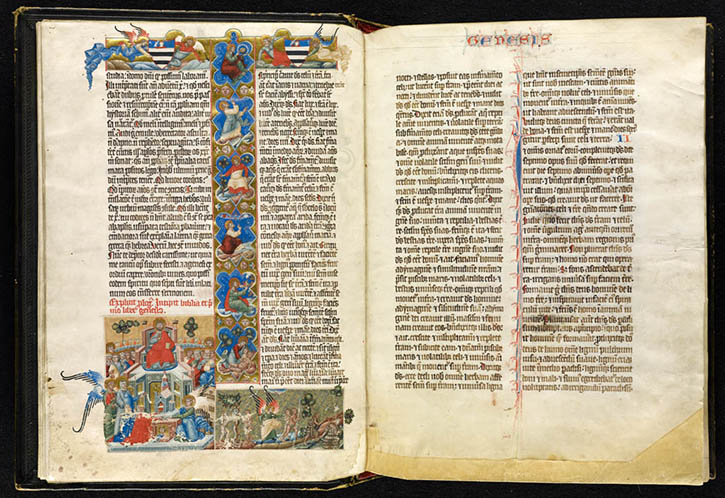
Bulletin 24 January 2016
Click below to read this weeks bulletin in PDF.

Click below to read this weeks bulletin in PDF.

The Adoration Chapel will close at 4p today, 21 January, due to inclement weather and reopen Sunday, 24 January, after the 8a Mass.
The Parish Office will be closed on Friday, 22 February.
Mass is cancelled Friday and Saturday morning.
Be sure to stay safe and warm out there and enjoy the snow!

We know that in most places the earliest Christians celebrated the Mass in Greek, even in the city of Rome. A few words like Amen, Hosanna, Alleluia, survived in their Hebrew forms from the Jewish liturgy. By the 4th century, Latin had replaced Greek, except for the Kyrie eleison (Lord, have mercy) litany and certain parts of the Good Friday Passion Liturgy. Now, some suppose that this was because Latin was the common tongue of the people in the Roman Empire. But the Latin of the Mass, as Christine Mohrman explains in her classic work on the subject, Liturgical Latin: Its Origins and Character, was remarkably different than that of ordinary speech, both in vocabulary and syntax. It was a hieratic, or sacred, form of the language.
In the Eastern Roman Empire, to become the Byzantine Empire, Christians began to use highly stylized sacred vernaculars, such as Old Church Slavonic instead of Russian. Church language often remained as it was for centuries even when the common tongue changed. In the West, as Christians went beyond the confines of the Roman Empire, they brought not only the Catholic faith but the Latin language. Latin very early on came to be seen as a force for unity for Catholics of all races, nations and cultures. The Mass was celebrated in Latin for centuries, although exceptions were granted, sometimes in very strange tongues and places: Glagolitic in Croatia in the 12th century and Iroquois in Canada in the 16th century. The Council of Trent debated in the 16th century whether or not to allow greater scope for the vernacular in the Mass, but it was rejected as inopportune at the time.
By the eve of Vatican II, however, Latin had become the preserve of Catholic clergy and was very much in danger of becoming extinct outside of the Church. St John XXIII in 1962 issued a powerful encyclical, Veterum sapientia, signed on the Papal Altar of St Peter’s, encouraging Catholics all over the world to know Latin just as Muslims know Arabic and Jews know Hebrew. A year later, Vatican II allowed for greater use of the vernacular in the Mass, but stated that Latin continues to be the language of our Roman liturgical worship.
In 1969, a new rite of Mass was promulgated by Bl Paul VI and appeared in English. Although the rite and the language were enthusiastically welcomed by most of the faithful, the translation was an insipid paraphrase of the Latin text that left out significant portions of the text and dumbed down others. It was not until 2011 that the English speaking world received a more accurate translation of those texts, which sometimes reflect even perhaps too closely the Latin style and word order of the original.
The language of worship, whether it be in Latin or in English, Old Church Slavonic or Spanish, is always going to be discontinuous with common speech. There is always going to be some element of the unfamiliar, and only education can bridge that gap. At Prince of Peace, we are blessed to have Latin and English, old and new coexist. Our school children grow up learning both, and can be comfortable with all of the riches of their faith. Some of us, including myself, did not have the same gift growing up, and are making up for lost time. But no matter what words we use to worship God, the most important thing is that our heart truly prays what the words of our lips pronounce. As St Bernardine had written around the choir stalls of his Franciscan friars in Siena, si cor non orat in vana lingua laborat – if the heart does not pray, in vain does the tongue labour.
Fr. Smith

Due to snow, Greenville County Schools have closed 20 January. Therefore, Religious Education is cancelled for tonight. Stay safe out there!

Recent Comments